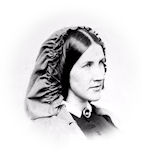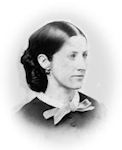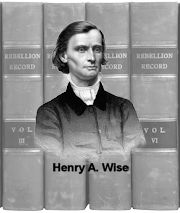March 12. — The forts in the harbor of NewYork, were this evening garrisoned by order of Edwin D. Morgan, Governor of the State.—The Union Defence Committee of New-York met at noon and passed a series of resolution complimentary to the officers, soldiers and seamen of the United States, for their participation in the recent victories of the National arms. — N. Y. Evening Post, March 12.
— Winchester, Va., was occupied by the Union forces under the command of Gens. Hamilton and Williams. .Company A, of the Wisconsin Third, Captain Bertrain, and a company from Connecticut, followed by Capt Coles’s company of Maryland, and a squadron of Michigan cavalry, were the first to enter the town. Two slight skirmishes occurred on the march.
The troops encountered a strong fort one mile out, which was evacuated by Jackson last night. The people generally were intensely delighted, and hail the coming of the Union army as a harbinger of peace and future prosperity. The regiments, as they passed, were cheered and greeted from the houses with various tokens of welcome, which were responded to warmly by officers and men.—(Doc. 87.)
—Serg. Wade, with a squad of the Carolina light dragoons, captured two of the enemy, about one mile from the Evansport batteries. The prisoners proved to be Lt. Wm. T. Baum, of Philadelphia, belonging to Gen. Hooker’s staff, and Mr. Gregg, telegraph operator, of the same division of the Federal army.—Norfolk Day Book, March 19.
—A Battalion, comprising the First Nebraska regiment and a portion of Curtis’s Iowa cavalry regiment, under the command of Colonel W. W. Lowe, attacked a force of rebels six hundred strong, this morning, defeating them and taking possession of the town of Paris, Tenn., but being apprised that a large force of rebels was within a few hours’ marching distance, they retired, bringing away a number of prisoners. Company A lost five men killed, among them the Sergeant-Major. A second battalion, under command of Lieut.-Col. Patrick, crossed the river to-day to reenforce them.—(Doc. 88.)
—In the United States Senate, Mr. Davis presented petitions from citizens of Kentucky, asking Congress to disregard all schemes for emancipation and attend to the business of saving the country.
—The town of Berryville, Va., was occupied by the National troops yesterday, Gen. Gorman directing the advance. The enemy had five hundred cavalry there on their arrival; but the signal ordered a charge of the New-York cavalry upon them, supporting the onset with a sufficient force of artillery and infantry. The enemy did not wait to fight, but retreated toward Winchester.
Twice last night were the pickets of Gen. Gorman’s brigade compelled to fall back by the charges of Ashby’s cavalry. This morning Gen. Gorman made a reconnoissance in force to within two miles of Winchester, drawing the rebel posse into an ingenious trap. They were again charged upon by the Union cavalry, losing four men killed and wounded. The arms, horses, and equipments, of the four victims, were captured.—N. T. Herald, March 13.
—The Florence (Ala.) Gazette, of this date, has the following: “We learned yesterday that the Unionists had landed a large force at Savannah, Tenn. We suppose they are making preparations to get possession of the Memphis and Charleston Railroad. They must never be allowed to get this great thoroughfare in their possession, for then we would indeed be crippled. The labor and untiring industry of too many faithful and energetic men have been expended on this road to bring it up to its present state of usefulness to let it fall into the hands of the enemy to be used against us. It must be protected. We, as a people, are able to protect and save it. If unavoidable, let them have our river, but we hope it is the united sentiment of our people, that we will have our railroad.”
—Jacksonville, Fla. was occupied by the National forces.—(Doc. 89.)





